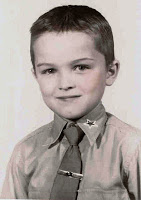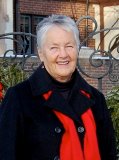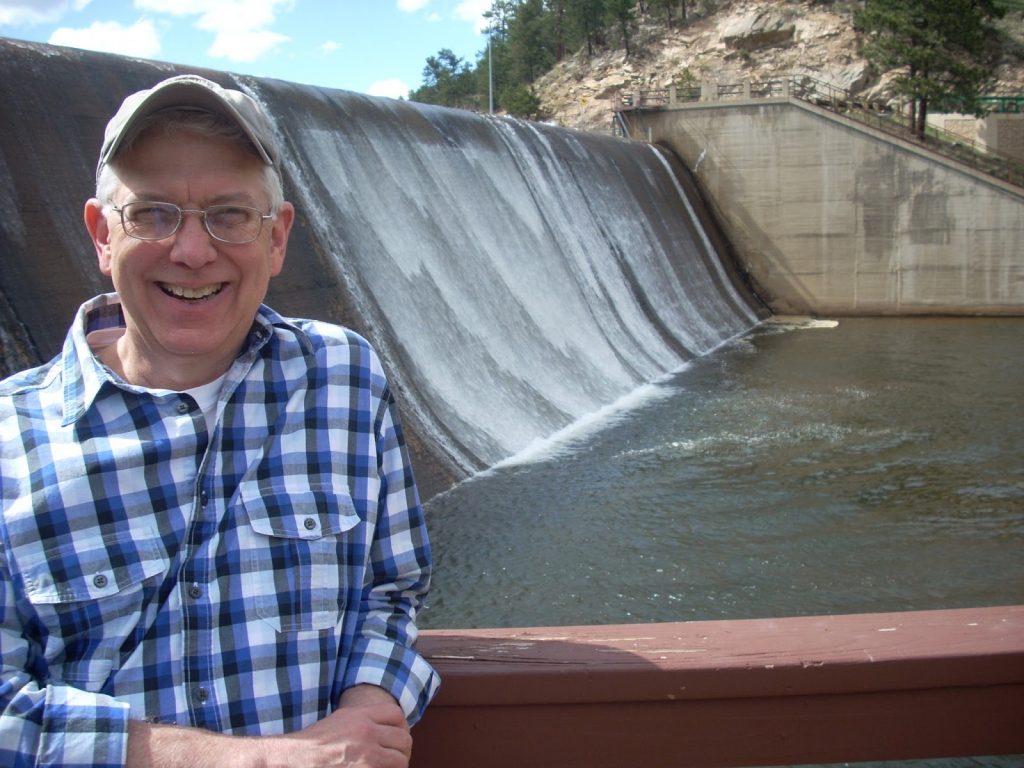People use words to communicate. In spite of a few of my acquaintances whom
never refer to me as a person, person of interest or disinterest, I use words
to communicate. It behooves all people
to communicate accurately by using words whose meaning everyone
understands. Those of us who have (or
still have at our senior age) a large vocabulary and can actually remember the
words when we need them, hold a big advantage over those persons with a limited
vocabulary – this category does not include young children whose minds are
trans sponge and cis blackholes. Any
parent can testify to the reality of that fact.
Perhaps you can remember a time when you were small or when your young
child accurately used or asked for the meaning of a “colorful” word while your mother was standing nearby – words
like: shit, cock, fuck, bitch, son-of-a-bitch, gay, lesbian, homo, or
pervert. A child’s vocabulary expands
very rapidly indeed. Especially when
following a child’s inquiry, the adult blurts out “Where the hell did you hear that word?” The answer is nearly always, “From you
Daddy.” At this point, you get a very
very stern look from your mother who
is still standing nearby. (Add “hell” to
the previous word list.) By the way,
does anyone know why little children seem to delight in saying those words at
the most embarrassing time, place, and circumstance?
never refer to me as a person, person of interest or disinterest, I use words
to communicate. It behooves all people
to communicate accurately by using words whose meaning everyone
understands. Those of us who have (or
still have at our senior age) a large vocabulary and can actually remember the
words when we need them, hold a big advantage over those persons with a limited
vocabulary – this category does not include young children whose minds are
trans sponge and cis blackholes. Any
parent can testify to the reality of that fact.
Perhaps you can remember a time when you were small or when your young
child accurately used or asked for the meaning of a “colorful” word while your mother was standing nearby – words
like: shit, cock, fuck, bitch, son-of-a-bitch, gay, lesbian, homo, or
pervert. A child’s vocabulary expands
very rapidly indeed. Especially when
following a child’s inquiry, the adult blurts out “Where the hell did you hear that word?” The answer is nearly always, “From you
Daddy.” At this point, you get a very
very stern look from your mother who
is still standing nearby. (Add “hell” to
the previous word list.) By the way,
does anyone know why little children seem to delight in saying those words at
the most embarrassing time, place, and circumstance?
While growing up from age 10 forward, I spent many hours of
my summer vacation from school reading for recreation to pass the time I consumed
babysitting my twin brother and sister. I
had many opportunities to interrogate a dictionary to obtain the meaning of a
word, if I could not deduce its meaning from the context of the usage.
my summer vacation from school reading for recreation to pass the time I consumed
babysitting my twin brother and sister. I
had many opportunities to interrogate a dictionary to obtain the meaning of a
word, if I could not deduce its meaning from the context of the usage.
If I didn’t know how to spell a word in elementary school, my
teachers would always tell me to look it up in the dictionary. I always retorted, “How can I look it up if I
don’t know how to spell it?” I finally
quit asking and just tried to figure out a way to write my assignment without
using that particular word.
teachers would always tell me to look it up in the dictionary. I always retorted, “How can I look it up if I
don’t know how to spell it?” I finally
quit asking and just tried to figure out a way to write my assignment without
using that particular word.
At one time I was a good speller. I never won the class spelling bee but I was
often 2nd. When I graduated
high school, my ability to spell began to fade away. Now I depend on my computer’s ability to know
what I am trying to communicate and to spell all the words correctly and place
them into proper grammatical position.
I’ve discovered that usually the computer and I are both week in the
grammar area.
often 2nd. When I graduated
high school, my ability to spell began to fade away. Now I depend on my computer’s ability to know
what I am trying to communicate and to spell all the words correctly and place
them into proper grammatical position.
I’ve discovered that usually the computer and I are both week in the
grammar area.
Communicating by pronouncing words correctly (making allowances
for regional dialects and not writing a homonym for the correct word) is
equally important for presenting a positive image to others along with having
your message correctly understood.
Perhaps you can remember President George W. Bush’s mangling of English
(some may call it misspeaking or misquoting).
“Dubya” attended some prestigious schools: Harvard Business School, Yale University, The
Kinkaid School, Phillips Academy, and Yale College. Yet his mangling (there I said it again) of
the language does not reflect well on those institutions or upon the Texas
education system, which already has major problems of its own. It goes without saying (but I’ll say it
anyway) it does not reflect well upon him either.
for regional dialects and not writing a homonym for the correct word) is
equally important for presenting a positive image to others along with having
your message correctly understood.
Perhaps you can remember President George W. Bush’s mangling of English
(some may call it misspeaking or misquoting).
“Dubya” attended some prestigious schools: Harvard Business School, Yale University, The
Kinkaid School, Phillips Academy, and Yale College. Yet his mangling (there I said it again) of
the language does not reflect well on those institutions or upon the Texas
education system, which already has major problems of its own. It goes without saying (but I’ll say it
anyway) it does not reflect well upon him either.
Words are used to label things and people. However, labels do not define a thing. Poorly paraphrasing Shakespeare, labeling a
rose a skunk, does not accurately call to mind its sweet smell. Placing a label on a person does not
accurately define who or what that person is like and the danger of mislabeling
someone is all too great. People are too
complex to be categorized by a label.
Humans are more than just words.
rose a skunk, does not accurately call to mind its sweet smell. Placing a label on a person does not
accurately define who or what that person is like and the danger of mislabeling
someone is all too great. People are too
complex to be categorized by a label.
Humans are more than just words.
I am tired of writing on this topic so here is the defining
word of the day, “supercalifragilisticexpialidocious”. If you don’t know what it means, look it up
in a dictionary or just watch Disney’s “Mary Poppins”.
word of the day, “supercalifragilisticexpialidocious”. If you don’t know what it means, look it up
in a dictionary or just watch Disney’s “Mary Poppins”.
© 22 Feb 2016
About the Author
I was born in June of 1948 in Los Angeles, living first in Lawndale
and then in Redondo Beach. Just prior to
turning 8 years old in 1956, I was sent to live with my grandparents on their
farm in Isanti County, Minnesota for two years during which time my parents
divorced.
and then in Redondo Beach. Just prior to
turning 8 years old in 1956, I was sent to live with my grandparents on their
farm in Isanti County, Minnesota for two years during which time my parents
divorced.
When united with my mother and stepfather two years later
in 1958, I lived first at Emerald Bay and then at South Lake Tahoe, California,
graduating from South Tahoe High School in 1966. After three tours of duty with the Air Force,
I moved to Denver, Colorado where I lived with my wife and four children until
her passing away from complications of breast cancer four days after the 9-11-2001
terrorist attack.
in 1958, I lived first at Emerald Bay and then at South Lake Tahoe, California,
graduating from South Tahoe High School in 1966. After three tours of duty with the Air Force,
I moved to Denver, Colorado where I lived with my wife and four children until
her passing away from complications of breast cancer four days after the 9-11-2001
terrorist attack.
I came out as a gay man in the summer of 2010. I find writing these memories to be
therapeutic.
therapeutic.
My story blog is: TheTahoeBoy.Blogspot.com


